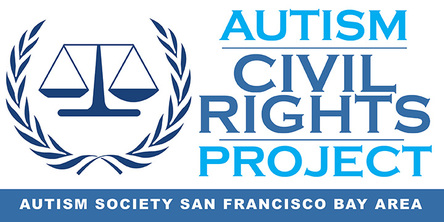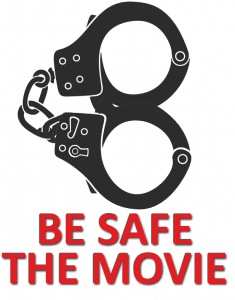
Welcome to SFASA's Autism Civil Rights Project
To better inform our autism community about important civil rights issues affecting all of us, we are publishing a series of interviews with experts exploring the interface between autism and the justice system. We will also be listing helpful resources.
Topics include:
• Interactions with police and first responders
• Criminal prosecutions
• Alternatives to prosecution, sentencing and incarceration
• The mismatch between autism-driven behaviors and traditional legal remedies
• Needed reforms
• Civil lawsuits, including NIMBY actions and harassment suits
If you would like to get involved with our project, please email us at info@sfautismsociety.org.
Expert Interviews and Presentations
Leigh Ann Davis, MSSW, MPA, is Program Manager; Justice Initiatives for The Arc’s Program Innovations Group
Ms Davis oversees The Arc’s National Center on Criminal Justice and Disability®.
James Elliott, MSW, Manager, Community Placement Program and Public Policy Compliance, San Andreas Regional Center
We discuss what happens when our children with ASD are accused of a crime.
Emily Iland and Tom Iland
People with ASD can be detained, questioned and arrested like anyone else. This is uncharted territory for most parents, so it’s a good idea to know the facts, plan ahead for such a situation and understand how to help protect your adult child’s civil rights. In this webinar you will:
1. Test your understanding of how the criminal justice system works.
2. Learn about police policies and procedures around detaining and arresting suspects (including those with ASD) taking them to jail, charging them with a crime and questioning them.
3. Learn about resources and options to prevent problems, prepare for different situations, and navigate this aspect of the criminal justice system.
When Autistic People Get Arrested
By Mark at Raising Autism
An autism father explains the system related to both adult criminal court or juvenile court. It contains an example of an information card to consider carrying:
My Name is_________________________
I am_______________________________
I wish to remain silent and do not wave my Miranda Rights.
I want my attorney to be present before any interrogation.
Please contact:
Parent’s name and telephone number
Attorney’s name and telephone number
For a wallet ID .docx file with the above information that can be filled in click here: Wallet ID
A Sister’s Quest to End Sexual Abuse of the Severely Disabled
People with intellectual disabilities are sexually assaulted at seven times the rate of people without disabilities, according to NPR. One of those victims is Natalie, the younger sister of Julie Neward, who has since transformed into a dogged advocate for the care and protection of our most vulnerable adults. Julie founded Natalie’s Voice, a sexual assault prevention advocacy movement, and the California Sibling Leadership Network, which aims to network and empower siblings of those with developmental disabilities. Interview by Jill Escher, president of SFASA and NCSA.
Read the interview: https://www.ncsautism.org/blog/end-abuse-of-the-severely-disabled
Criminal Justice System Resource List
Background information on people with autism and the criminal justice system.
Purdue Global: Autism Spectrum Disorder and the Criminal Justice System
An in-depth information on ASD and the criminal justice system.
IAN Community: Autism and Crime
This is also good overview on the scholarship on autism and crime. It focuses on existing scholarship.
Video on Autism and Law Enforcement
This video demonstrates how law enforcement may treat people with autism, using simulations of the legal process.
DOJ Guidance on Disabilities in the Criminal Justice System
Individuals with disabilities must be treated equally as non-disabled individuals in the criminal justice system. The Department of Justice published a guidance on this.
Autism Speaks: Autism Safety Project
Discusses how people in the judicial system must change their mode of communication when interacting with people with disabilities.
Rolling Stone: Entrapment
Jesse Snodgrass was a high school student who was pressured by an undercover officer to sell him marijuana. Wanting to make friends, Jesse became an unwilling “dealer” in the eyes of the law.
L.E.A.N.
“Since 2002, L.E.A.N. On Us has worked to assist first responders to collaborate in meeting the needs of individuals with disabilities.” Based in Michigan, L.E.A.N’s Facebook page is a continually updated feed of relevant news stories.
Office for Victims of Crime: Promising Practices for SErving Crime Victims with Disabilities Toolkit
From Department of Justice, Office of Victims of Crime, this toolkit focuses on serving crime victims with disabilities. This could also be used to help kids with disabilities in the criminal justice system.
Autism Speaks: Information for Law Enforcement
What law enforcement should know when interacting with people with autism.
Be Safe the Movie
Be Safe is a movie that teaches viewers how to interact with the police through video modeling.














